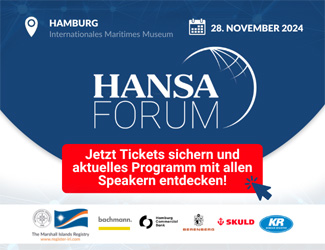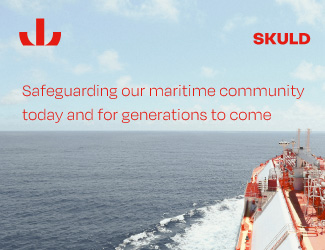The traditional shipping centres in in the EU are still a heavyweight in the maritime world, but competition is catching up. Regulators have to review EU policy as emerging shipping hot spots gain appeal for international owners and operators
While in general the EU offers a competitive framework for shipping, some specific policies are less competitive compared to other[ds_preview] leading shipping centres. Monitor Deloitte, commissioned by the European Community Shipowners’ Association, has compared the EU to Singapore, Hong Kong, Dubai, Shanghai, and Vancouver. The analysts have devised a set of policy recommendations on how to improve Europe as a shipping location.
In November 2016, EU28 and Norway owned 36.5% of the gross world tonnage, whereas 46.2% were operated from the same countries. However, compared to the international growth centres, the EU is experiencing a slower growth in terms of the tonnage operated and owned. In recent years, the EU has just been able to keep up an annual growth rate equal to the world average, while the most important international shipping centres outside the EU have had strong annual growth rates.
To what extent do European policies support the long-term global competitiveness or are they in fact contributing to the relocation of companies activities as well as further de-flagging outside Europe? Monitor Deloitte found a number of important gaps where the EU offers less attractive or consistent policies.
Taxation and fiscal incentives
The ease of relocation of activities in combination with the aggressive fiscal incentives that other international centres offer suggest that effective taxation is a »sine qua non condition« to maintain a sizeable market share. The current regime facilitated by the Community Guidelines on State aid to maritime transport (2004/C 13/03, SAGs) provides for a relatively competitive European shipping sector.
But Monitor Deloitte’s analysis reveals that the EU framework is less competitive with regard to several elements, including eligibility criteria relating to the flag requirement and the current ring-fencing put in place by the European Commission.
The requirement of a flag link in the tonnage tax regime is restricting the operational freedom of owners and operators in the EU, even though the SAGs contain a pragmatic degree of flexibility regarding the use of EU flags. In general, the choice of a flag is determined by the standards practiced by the administration as well as by costs and bureaucracy. EU flags might not always provide the most attractive commercial framework, and requirements could lead to increased operating costs or lack of market access.
Furthermore, the economic value of belonging to a quality EU register for shipowners has been eroded by the high level of international harmonisation. Hence, by insisting on a flag link eligibility requirement for the special fiscal treatment, the EU will lose attractiveness.
Economic and political factors
A significant gap has been identified, relating to the application and legal status of the SAGs. While in their current form they provide a good framework, the freedom of member states to tailor the framework to their needs is restricted. The EU and national interpretation of the SAGs is based on legal grounds, but lacks flexibility, whereas international centres are often much more pragmatic and business-friendly. This problem is reinforced by the fact that the SAGs are easily amendable from a EU perspective and that there are no explicit periods of applicability. For long-term business decisions these factors give rise to uncertainty due to a perceived risk of interpretative policy change. In some of the centres (Hong Kong and Vancouver), rules governing fiscal treatment are written in primary legislation, and perceived policy risks are marginal.
Monitor Deloitte sees a need for a comprehensive policy for shipping with a focus on supporting the global competiveness of the sector. While emphasising the inherent global nature of shipping, the current maritime transport strategy focuses on waterborne transport internal to the EU. The global challenge to EU shipping requires a more globally oriented policy that should cut across policy fields like transport, taxation, environment, etc. and thereby cover the key competitiveness factors.
Professional services and skills
There is a marked difference between the EU and the five benchmarked centres, except Shanghai, at a more fundamental level in the way that professional services are actively included in policies. In four centres, the core ambition is to support the development of high value-added professional service jobs around the core shipping operations in order to develop the maritime cluster and its competitiveness. The EU does not have a similar policy in place.
There is no significant financial gap in the EU regulatory framework for subsidies to training or to the labour-related costs such as provisions on exemption of seafarers’ income tax and exemption of social contribution payments. However, there is a gap regarding the scope of the training. Within the EU, this is solely focused on EU seafarers, whereas the scope in other centres is wider and also includes upskilling in the maritime professional services sector and other onshore-based jobs.
Flag attractiveness
There are possible important policy gaps that may affect competitiveness negatively and possibly lead to relocation of activities and de-flagging to outside the EU. These are, among others, caused by a problematic introduction of EU legislation for international shipping and thereby introduction of different standards for EU flags and shipowners, causing additional administrative and technical requirements. Furthermore, some EU registers still stipulate specific nationality requirements and crewing restrictions that also lead to increased economic and administrative burdens. Lastly, there is a lack of cross-member state digital solutions that would allow EU shipping companies to benefit specifically from being registered under an EU flag.
Deloitte warns about the implementation of regulations outside IMO/ILO as they increase the operating costs relative to flag states, such as Singapore. The city state has strategies to ensure that the regulation does not go beyond the international standards or further restrict operations through additional national requirements. This leads to lower operational costs and higher flag attractiveness.
Ease of doing business
Monitor Deloitte identified policy gaps that relate to the lack of focus on ease of doing business for shipping companies involved in global activities. The international centres provide examples of an approach where the perspective is global and as much on facilitating activities from abroad as on facilitating only internal activities. It also seems that a customer-related approach such as a one-stop shop, etc, is still missing rather often within the EU and its member states and the administrations involved.
Availability of finance
There is a number of policy gaps relating to the focus on mainly intra-EU investment support, the lack of transparency surrounding EU financial offerings, high administrative complexity and the uncertainties surrounding the new Basel regulations and their implications on ship financing through EU-based banks.
It is stressed that approximately 70% of the EU fleet are private enterprises that rely primarily on commercial bank financing. The current regulatory framework for bank financing is already restrictive, and the Basel IV proposals will make ship financing from banks even more scarce. With regard to the proposed Basel IV regulations, Monitor Deloitte sees a need to include the consideration of the repercussions in the EU, especially on SME shipowners and operators who traditionally rely heavily on bank loans. This is in contrast to non-EU shipping companies that have more options for financing besides the traditional bank loans.
















